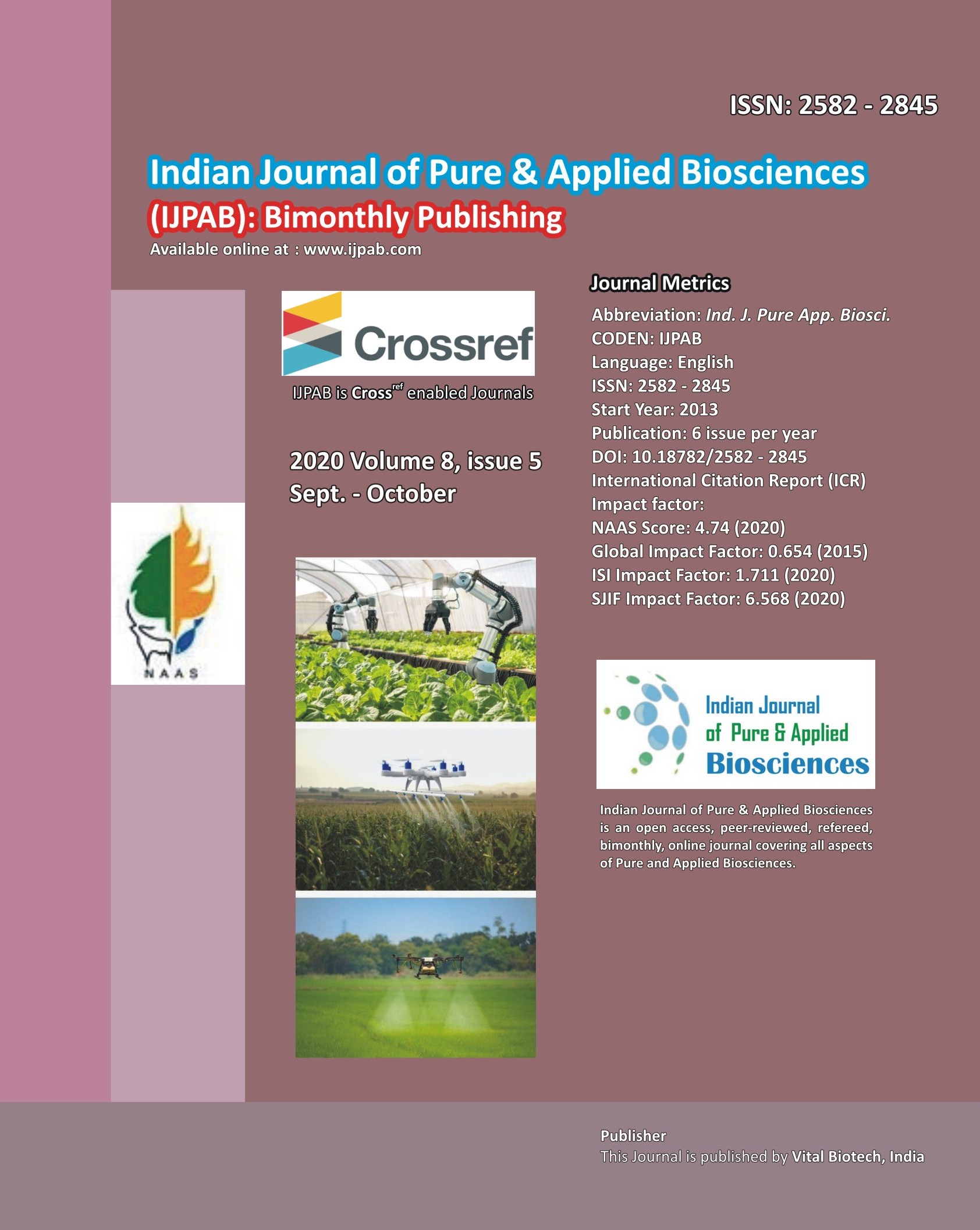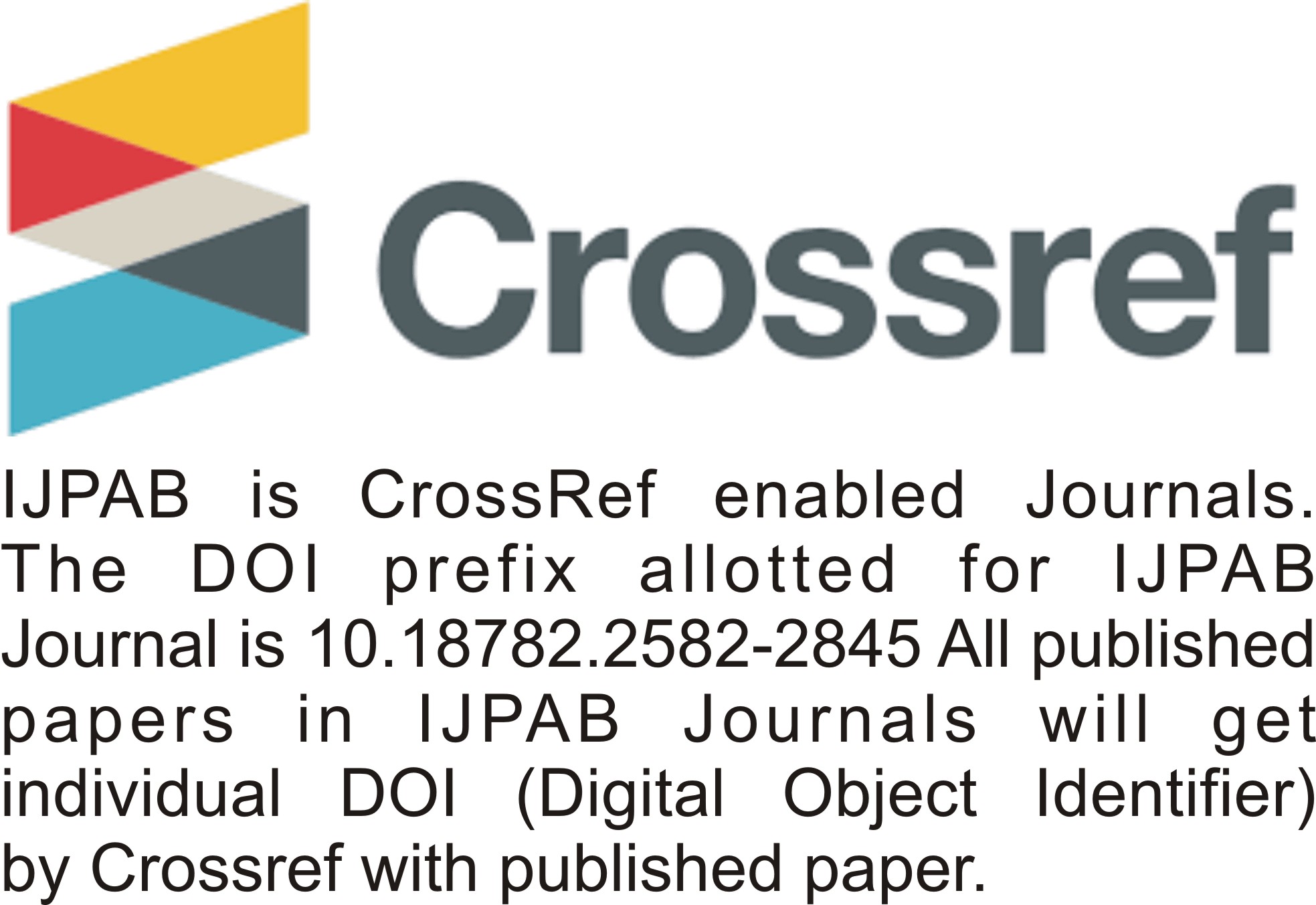
-
No. 772, Basant Vihar, Kota
Rajasthan-324009 India
-
Call Us On
+91 9784677044
-
Mail Us @
editor@ijpab.com
Indian Journal of Pure & Applied Biosciences (IJPAB)
Year : 2020, Volume : 8, Issue : 5
First page : (138) Last page : (140)
Article doi: : http://dx.doi.org/10.18782/2582-2845.8338
Modern Versions of Empowered Women
Ayuta Mohanty1* ![]() and Puspita Das2
and Puspita Das2 ![]()
1Lecturer, Department of Humanities and Social Science,
C.V. Raman Global University, Bhubaneswar, Odisha
2Professor, Department of Extension and Communication Management,
College of Community Science, Central Agricultural University, Tura, Meghalaya
*Corresponding Author E-mail: ayutamohanty@gmail.com
Received: 2.09.2020 | Revised: 6.10.2020 | Accepted: 10.10.2020
ABSTRACT
The modern world associates feminism with ‘men-bashing’ and defaming men and hence has become a stereotype in itself. Contemporary writers have started a trend to break this stereotype and reinvent the concept of feminism as a movement that creates a better and equalised society for all the genders without any discrimination. This paper looks at one such novel written by two modern women about their interaction with many modern women who achieved the true essence of women empowerment. The novel Feminist Rani written by Meghna Pant and Shaili Chopra contains collection of interviews of revolutionary personalities whose path-breaking and bold opinion and work regarding gender equality can serve as a medium to encourage gender equality in a patriarchal society. The paper discuses two such well-known personalities from the fiction-Kalki Koechlin and Gul Panag- two similar yet very different women who can be considered the modern versions of empowered women and can be projected as role model for the modern women and the society.
Keywords: Feminism, Modern, Empowerment, Women, Patriarchy.
Full Text : PDF; Journal doi : http://dx.doi.org/10.18782
Cite this article: Mohanty, A., & Das, P. (2020). Modern Versions of Empowered Women, Ind. J. Pure App. Biosci. 8(5), 138-140. doi: http://dx.doi.org/10.18782/2582-2845.8338
INTRODUCTION
According to European Institute for Gender Equality, “Women’s empowerment has five components: women’s sense of self-worth; their right to have and to determine choices; their right to have access to opportunities and resources; their right to have power to control their own lives, both within and outside the home; and their ability to influence the direction of social change to create a more just social and economic order, nationally and internationally.” (Women empowerment). One of the major aims of feminist movement is achieving women empowerment. Women will be empowered in its true sense only if they fulfil the above five components. However, feminism gets associated with the concept of ‘men-bashing’ instead of emancipation of women, and hence making feminism a stereotype- a concept that the movement aimed to defy and break. As Meghna Pant says about Feminism in the Prologue, “it’s about exercising your own choice of representation, discourse and agency.” (Chopra & Pant viii). The patriarchal society also analyses women in two shades- either black or white. The authors of this book use the specific term ‘binaries’ for this in the Prologue. In Meghna’s words, “A woman is, therefore, seen either as an abla nari or krantikaari, a devi or dayan, a virgin or whore. She exists only in binaries.” (Chopra & Pant ix). Not just that the real essence of feminism gets lost among these stereotypes associated to it. The real essence of feminism is to uplift the status of women with active inclusion of both men and women to create an equalised society in its true sense. The fight of feminism is not of men against women but men and women together fighting against the injustice prevailing in the unjust system set by patriarchy. This paper discusses two such empowered modern women interviewed by Meghna Pant- Kalki Koechlin and Gul Panag.
DISCUSSION
The paper discusses two interviews of Meghna Pant as depicted in the book Feminist Rani. During her interview with Meghna Pant, Kalki pointed out how the patriarchal society considers women weaker than men and associates women as a property of their husbands. She felt that women should have the independence to decide for themselves. As she states, “Women shouldn’t have a rulebook on how to live their life. We tend to lose ourselves when we look for approval for the outside.” (Chopra & Pant 5). Kalki is aware of her essence, her existence and her self-worth. She is well aware of her rights as an individual as well as capable and brave enough to chart her life according to her own terms. “Like many Indian women who don’t follow a prescribed patriarchal path, Kalki has spent her entire life breaking stereotypes and preconceived notions about herself, her agency and her identity.” (Chopra & Pant 5). She feels the society’s expectation that women need to fit in to the societal norms set for them is wrong. She believed in stepping out of her comfort zone to break the boundaries of social conventions to achieve something unique. For Kalki, “Feminism is really about being a human being who is constantly rethinking her existence and trying to grow” (Chopra & Pant 9). She believes feminism is something that focuses on equality and not something that is opposed to patriarchy. She leads a life that is quite different from the prototypes and stereotypes set by the society that gets conditioned in the minds of people and creates an image of a self-sacrificing and obedient woman as the ideal who live to please the men in her life. She feels the concept of love conditioned in women’s mind where women are damsels in distress and their husbands will rescue them as their ‘Prince Charming’ is not real. Kalki is someone who charted “a course for women in a way only a true feminist can: through merit and example”. (Chopra & Pant 14).
The second empowered modern woman in the true essence is Gul Panag. Her answer in Miss Universe pageant made Meghna Pant realize that revolution is not necessary to improve the condition of women; what is required is that women should care about the position of other women. Meghna feels that “instead of allowing the system to dictate how she should behave, Gul possessed the courage to dictate change to the system” (Chopra & Pant 95). Gul believed that when more women come out on the scene, men and their thinking and attitude towards women can be desensitized. When she contested elections in 2014, she campaigned on a bike that later became a “powerful symbol of emancipation” and independence for women. (Chopra & Pant 98). She addressed the issues of gender division, women safety and gender neutral institutions. However, men in that area considered her bike campaigning as a corrupt step for their “domesticated women” (Chopra & Pant 100). She felt that if women are financially independent then only women empowerment can be achieved. She never feared to try anything new and a reason behind this was her family who always gave her an empowered vision. She said, “When as a woman you show the world what you can do, you inspire many other women to go out there and achieve their dreams.” (Chopra & Pant 106). With such beautiful thinking, Gul is really a versatile person who has the courage to fight any obstacle that obstructs her way. Being happily married, she feels that motherhood should be the decision of a woman but in patriarchal societies, that right is generally taken away from her. Having a versatile career-“Miss India, Model, Actor, Activist, Fitness Enthusiast, Traveller, Politician, Entrepreneur and Aviator”- she encourages women that if they have an ambition and they work for it, there is no limit to achieve anything. (Chopra & Pant 108).
CONCLUSION
Both Kalki and Gul can be considered empowered women if we look at the definition given by European Institute for Gender Equality. They clearly fulfil all the five components and stands out as role models for the modern women to achieve empowerment in its true essence.
REFERENCES
Chopra, & Shaili & Pant, M. (2018). Feminist Rani. Gurgaon: Penguin Books, Print.
Women empowerment. N. D. Online. 17 September 2020. <https://eige.europa. eu/thesaurus/terms/1102>.

